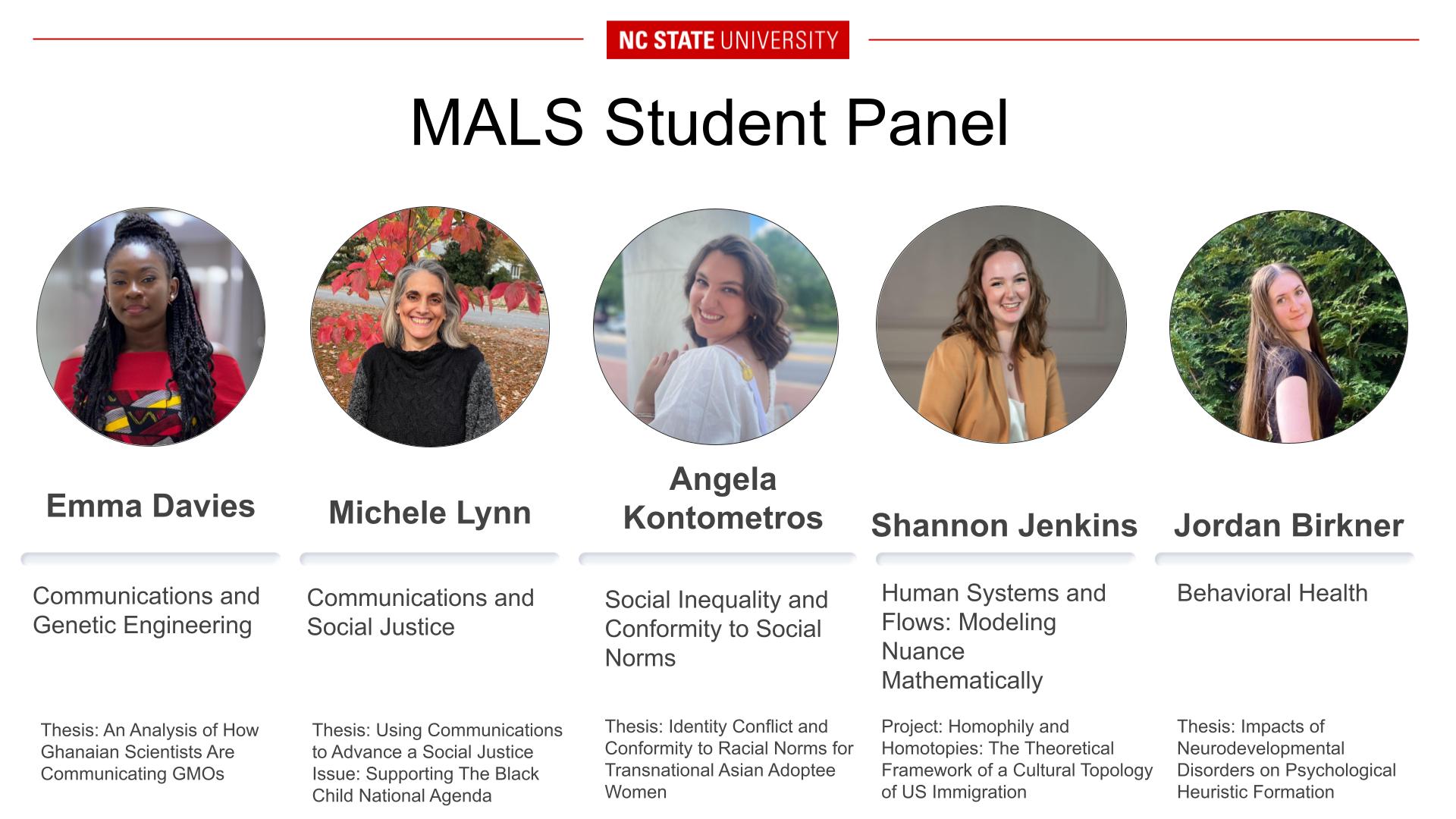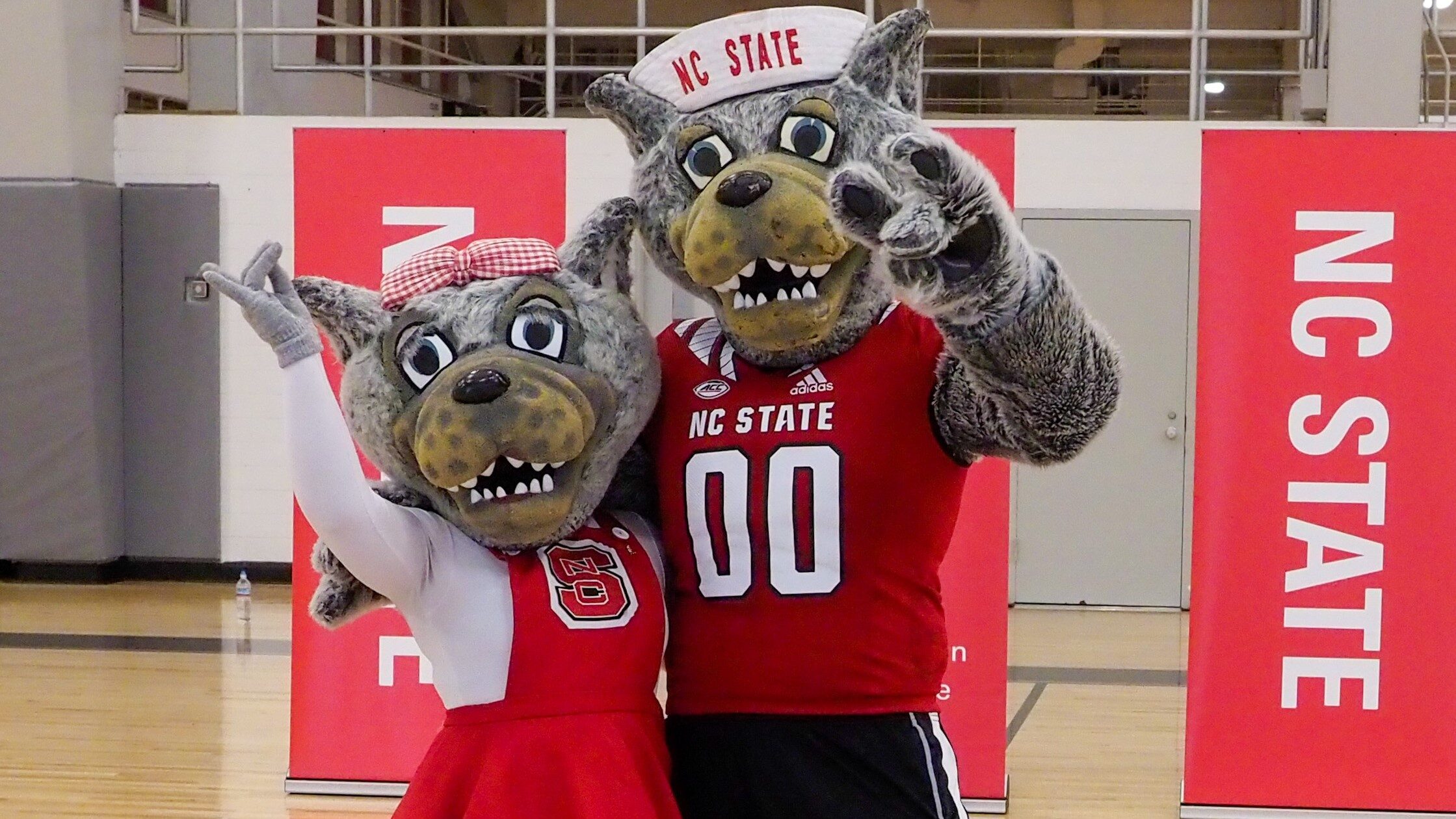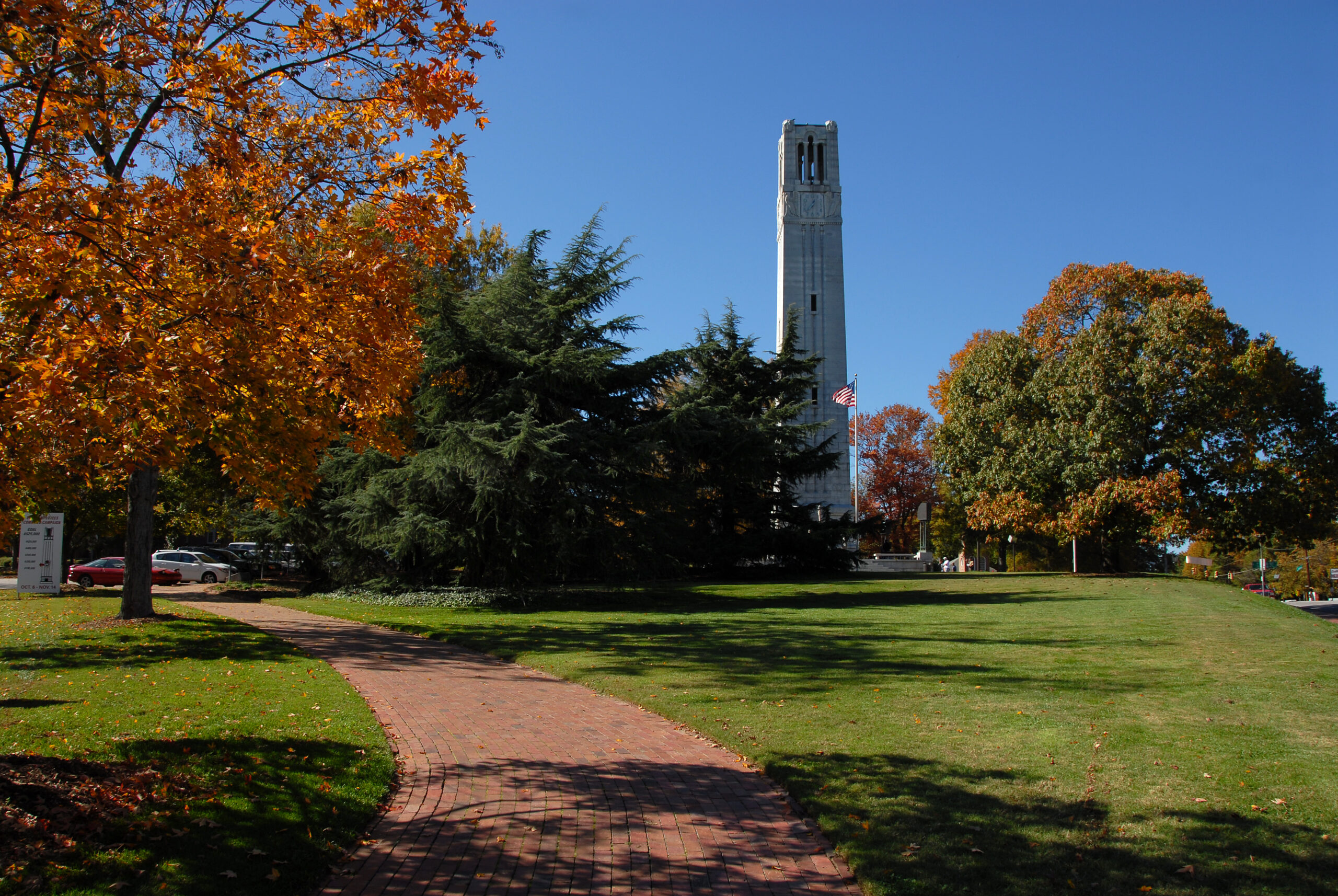MALS Student Curates Pop-up Exhibit on Letters from African-American Leaders
Master of Arts in Liberal Studies candidate Carl Wilkins brought key moments in African-American history to life during a pop-up exhibit he recently presented on campus.
His curated show, “In the Writing: Personal Letters of African-American Leaders from the Mark E. Mitchell Collection,” featured letters from the renowned Mark E. Mitchell Collection of African American History, including correspondence from Malcolm X to Alex Haley, Frederick Douglass to Senator Blanche Kelso Bruce and George Washington Carver to Henry Ford. During the six-hour exhibit, held April 24 in the James B. Hunt Jr. Library’s Teaching and Visualization Lab, Wilkins also talked about the collection and his curation process.

Wilkins discusses the various letters included in his pop-up exhibit, “In the Writing.”
Based in Florida, the Mitchell Collection comprises more than 4,000 original historic manuscripts, documents, newspapers, books, photographs and artifacts, dating from the early 1600s through the present. Wilkins curated a selection of letters for the exhibit, which served as his final project for an independent study with foreign languages and literatures professor Shelley Garrigan.
Wilkins has worked with Mitchell to create more opportunities for the public to discover the collection. In January, at the African American Cultural Celebration outside the North Carolina Museum of History, they showed items such as first editions of a Phyllis Wheatley book and Solomon Northrup’s Twelve Years a Slave, and an original depiction of the Amistad slave mutiny.
“It was breathtaking,” Wilkins remembers. “It’s one thing to see pictures of letters and historical figures, or to see videos of them. But what’s interesting about my exhibit and what we present is that these are different mediums for people to connect with them. Letters are more tangible and personal, and offer a different lens or perspective for people to view these historical figures. That’s what’s really special about it.”
The Malcolm X letter, for instance, offers insight into the author’s restless mindset in the last years of his life.

A visitor examines an artifact during “In the Writing,” a pop-up exhibition curated by Master of Arts in Liberal Studies candidate Carl Wilkins in the James B. Hunt Jr. Library Teaching and Visualization Lab, on Monday, April 24, 2017.
“The letter was written in 1964 during a time when Malcolm took a trip to Africa to visit various countries and leaders,” Wilkins says. “This was his last trip out of the country.
“During that time he was staying with President Sekou Touré of Guinea, and he penned Alex Haley, who wrote Malcolm’s autobiography,” he continued. “Essentially he wrote that he was meeting all these African presidents and that these experiences had broadened and matured his outlook, but that he missed home and asked Haley to keep in close touch with his wife. He also says he’s going to make a trip through Paris and London on the way back to the U.S. because he’d never been there before.
“Toward the end of the letter it almost seems like a premonition, in a sense. He seems to know that he’s never going to be able to leave the U.S. again so he actually states that he doesn’t know when he’ll be able to leave the States again so he wants to be able to make these trips before he comes back home.”
Wilkins, who is working with the Mitchell Collection as a curatorial liaison, valued the chance to show these letters in the Teaching and Visualization Lab, outside of a traditional museum context. His exhibit was the first in the Teaching and Viz lab to feature both physical and digital displays.
“These artifacts are held in private hands, so a lot of these items don’t see the light of day very often,” Wilkins said. “Using screens as a medium presents a bridge to enhance the experience of these tangible and analog items.”
Click here for more information on the Master of Arts in Liberal Studies program.
- Categories:


